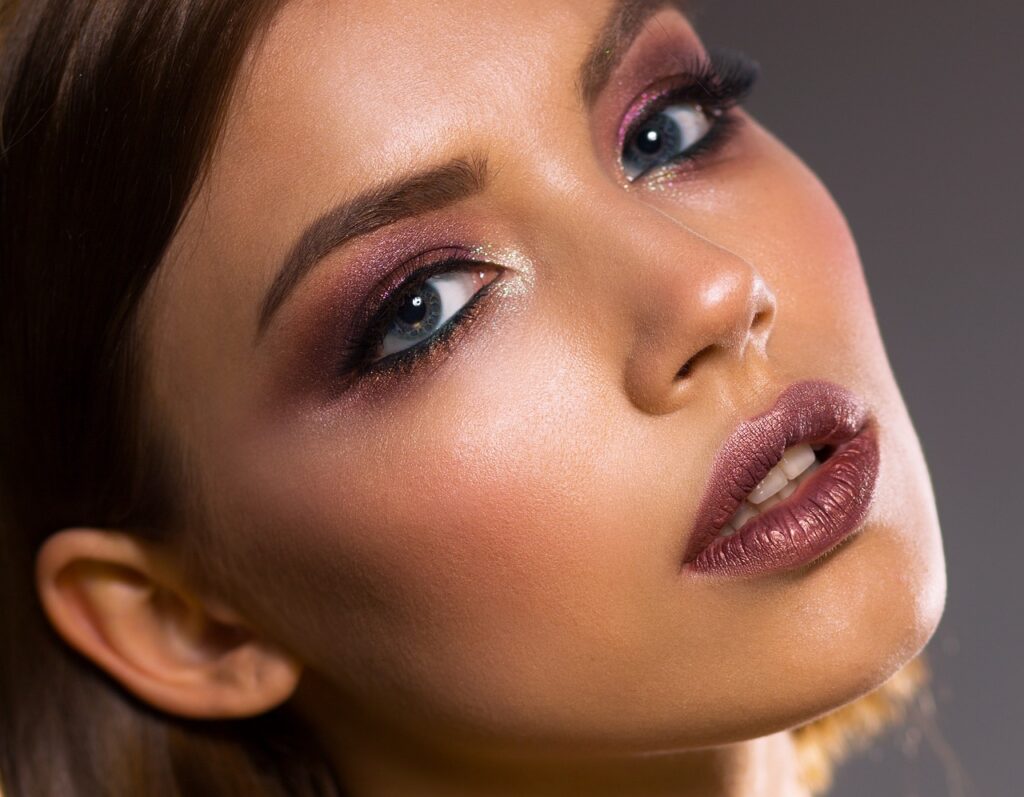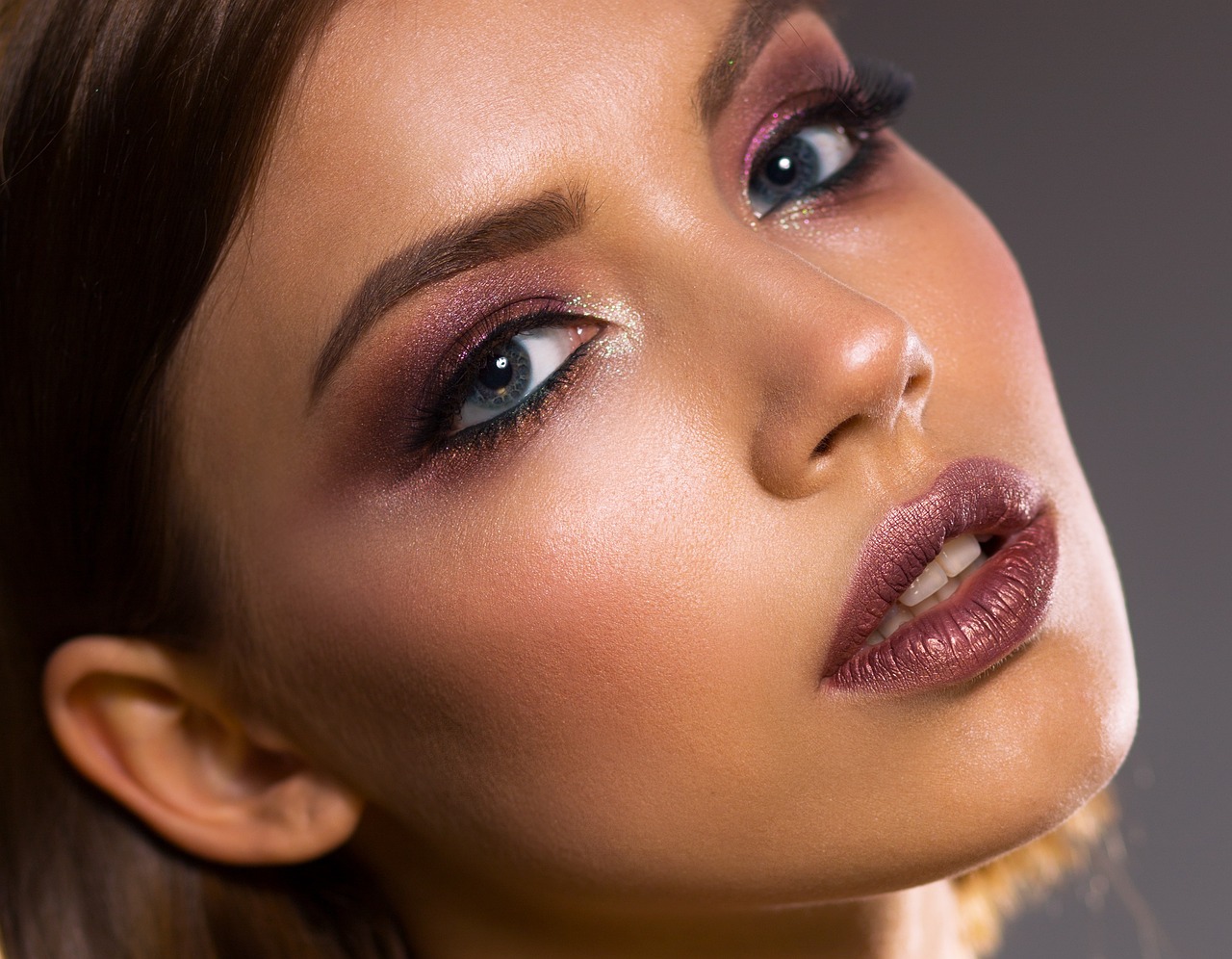If you’ve ever wondered how to attain a picture-perfect complexion, look no further. This article gathers a collection of tried-and-true tips that will help you achieve a flawless look. From skincare routines to makeup techniques, we’ll explore a range of ideas that will leave you feeling confident and radiant. So, whether you’re a skincare enthusiast or a makeup newbie, get ready to unlock the secrets to achieving a flawless complexion.

This image is property of pixabay.com.
Maintain a Consistent Skincare Routine
Having a flawless complexion requires dedication and consistency in your skincare routine. By following a few simple steps, you can ensure that your skin stays healthy and radiant.
Cleanse Daily
One of the most important steps in any skincare routine is cleansing your face daily. Cleansing helps to remove dirt, oil, and impurities that can clog your pores and lead to breakouts. It is essential to choose a gentle cleanser that suits your skin type. If you have dry or sensitive skin, opt for a hydrating cleanser, while those with oily or acne-prone skin may benefit from a cleanser containing salicylic acid or benzoyl peroxide. Remember to wash your face with lukewarm water, as hot water can strip away the natural oils from your skin.
Exfoliate Regularly
Exfoliation is key to achieving a flawless complexion as it helps to remove dead skin cells and reveal fresh, glowing skin underneath. Regular exfoliation can also improve the texture of your skin and allow for better absorption of other skincare products. However, it is important to exfoliate gently and not overdo it, as excessive exfoliation can cause skin irritation and damage. Choose a gentle exfoliator that suits your skin type and exfoliate no more than two to three times a week.
Moisturize Properly
Proper moisturization is essential for maintaining a healthy and radiant complexion. Moisturizers help to hydrate and nourish your skin, preventing it from becoming dry, flaky, and dull. Choose a moisturizer that suits your skin type and contains ingredients like hyaluronic acid, glycerin, or ceramides for hydration. If you have oily skin, opt for a lightweight, oil-free moisturizer, while those with dry skin should choose a richer, more emollient formula. Remember to apply moisturizer to clean, dry skin and massage it in gently using upward strokes.
Use Sunscreen Daily
One of the most crucial steps in achieving a flawless complexion is protecting your skin from the harmful rays of the sun. Sun damage can lead to premature aging, sunspots, and an increased risk of skin cancer. To protect your skin, make sure to apply a broad-spectrum sunscreen with an SPF of 30 or higher every day, even on cloudy days. Apply sunscreen generously to all exposed areas of your body, including your face, neck, and hands. Reapply every two hours, especially if you are sweating or swimming.
Treat Specific Skin Concerns
While maintaining a regular skincare routine is important for achieving a flawless complexion, it is also essential to address any specific skin concerns you may have. Whether you’re dealing with acne, dark spots, fine lines, or uneven texture, there are targeted treatments available to help improve your skin’s appearance. Consult with a dermatologist or skincare professional to determine the best course of action for your specific concerns. They may recommend ingredients like retinol, vitamin C, or niacinamide, or suggest professional treatments like chemical peels or laser resurfacing.
Eat a Healthy Diet
In addition to following a consistent skincare routine, achieving a flawless complexion also requires nourishing your skin from within. Your diet plays a significant role in the health and appearance of your skin. Incorporating certain foods and avoiding others can help promote a clear and glowing complexion.
Hydrate with Water
One of the simplest and most effective ways to improve your skin’s appearance is by staying properly hydrated. Drinking an adequate amount of water helps to flush out toxins from your body and keeps your skin hydrated and supple. Aim to drink at least eight glasses of water a day, or more if you are physically active or live in a hot climate.
Include Antioxidant-Rich Foods
Antioxidants are essential for protecting your skin against free radical damage and reducing inflammation. Incorporating antioxidant-rich foods into your diet can help promote a healthy complexion. Include a variety of fruits and vegetables in your meals, such as berries, spinach, kale, and sweet potatoes. These foods are packed with vitamins A, C, and E, which are known for their antioxidant properties.
Consume Healthy Fats
Including healthy fats in your diet can do wonders for your skin. Omega-3 fatty acids, found in fatty fish like salmon and sardines, as well as nuts and seeds, help to nourish your skin and keep it hydrated. Avocados, olive oil, and coconut oil are also excellent sources of healthy fats that can contribute to a radiant complexion.
Limit Processed Foods
Processed foods, such as fast food, sugary snacks, and pre-packaged meals, can have a negative impact on your skin. These foods are often high in sugar, unhealthy fats, and preservatives, which can lead to inflammation and breakouts. Instead, opt for whole foods that are rich in nutrients and free from artificial additives.
Avoid Excessive Sugar and Dairy
Consuming excessive amounts of sugar and dairy products can contribute to skin issues such as acne and inflammation. Cut back on sugary drinks, desserts, and processed snacks, and opt for natural sweeteners like honey or maple syrup. Additionally, consider reducing your intake of dairy products or choosing alternatives like almond milk or coconut milk, as dairy has been linked to increased oil production and breakouts in some individuals.

This image is property of pixabay.com.
Get Enough Sleep
Adequate sleep is an essential component of achieving a flawless complexion. During sleep, your body goes into repair mode, and your skin cells regenerate and rejuvenate. Without enough sleep, your skin may appear dull, puffy, and lackluster. Follow these tips to ensure you get the restful sleep your skin needs.
Establish a Bedtime Routine
Creating a bedtime routine can help signal to your body that it’s time to relax and prepare for sleep. Establish a consistent sleep schedule by going to bed and waking up at the same time every day, even on weekends. Engage in relaxing activities before bed, such as reading a book, taking a warm bath, or practicing deep breathing exercises.
Create a Comfortable Environment
Your sleep environment plays a significant role in the quality of your sleep. Ensure that your bedroom is cool, dark, and quiet. Invest in a comfortable mattress, pillows, and bedding to enhance your sleep comfort. Consider using blackout curtains, earplugs, or a white noise machine if you are easily disturbed by external stimuli.
Limit Caffeine and Electronic Devices Before Bed
Consuming caffeine, found in coffee, tea, and some sodas, too close to bedtime can interfere with your ability to fall asleep and stay asleep. Limit your caffeine intake, especially in the evening, to ensure it doesn’t disrupt your sleep. Additionally, the blue light emitted by electronic devices, such as smartphones and tablets, can interfere with your body’s natural sleep-wake cycle. Avoid using electronic devices for at least an hour before bed or use blue light filters to minimize the impact on your sleep quality.
Manage Stress Levels
Stress can take a toll on your overall well-being, including the health and appearance of your skin. By adopting stress management techniques and incorporating healthy habits into your lifestyle, you can minimize the negative effects of stress on your complexion.
Practice Relaxation Techniques
Engaging in relaxation techniques can help reduce stress levels and promote a sense of calm. Consider incorporating activities such as deep breathing exercises, meditation, yoga, or tai chi into your daily routine. These practices can help relax your mind and body, leading to a more balanced and radiant complexion.
Engage in Regular Exercise
Regular exercise not only benefits your physical health but also plays a significant role in managing stress levels. Physical activity releases endorphins, known as “feel-good” hormones, which can boost your mood and reduce stress. Aim for at least 30 minutes of moderate-intensity exercise most days of the week, such as brisk walking, cycling, or swimming.
Avoid Smoking and Excessive Alcohol Consumption
Smoking and excessive alcohol consumption can have detrimental effects on your skin and overall health. Smoking decreases blood flow and oxygen supply to the skin, leading to a dull complexion and premature aging. Alcohol can dehydrate your skin, disrupt your sleep, and contribute to inflammation. If you smoke, consider seeking support to quit, and if you drink alcohol, do so in moderation and be mindful of its impact on your skin.

This image is property of pixabay.com.
Protect Your Skin from Environmental Factors
Daily exposure to environmental factors, such as the sun, harsh weather conditions, and pollutants, can damage your skin and contribute to various skin concerns. Taking steps to protect your skin from these factors can help maintain a flawless complexion.
Wear Protective Clothing
When spending time outdoors, it is essential to protect your skin by wearing sun-protective clothing. Opt for lightweight, long-sleeved shirts and pants to cover exposed skin. Look for clothing with a high UPF (ultraviolet protection factor) rating for added sun protection.
Use Hats and Sunglasses
Wearing a wide-brimmed hat and sunglasses can provide additional protection to your face and eyes from the sun’s harmful rays. Choose a hat that shades your face, neck, and ears, and opt for sunglasses with UV protection to shield your eyes and delicate skin around them.
Seek Shade during Peak Sun Hours
The sun’s rays are most intense between 10 a.m. and 4 p.m., so it’s advisable to seek shade during these hours. If you need to be outside during this time, try to stay under a tree, umbrella, or other forms of shade. This can significantly reduce your exposure to harmful UV radiation.
Avoid Tanning Beds
Tanning beds emit harmful ultraviolet (UV) radiation, which can damage your skin and increase your risk of skin cancer. Avoid the use of tanning beds and opt for safer alternatives, such as self-tanning products, if you desire a sun-kissed glow.
Limit Exposure to Harsh Weather Conditions
Extreme weather conditions, such as cold winds or hot and dry climates, can strip your skin of its natural moisture and cause dryness, redness, and irritation. Protect your skin by wearing appropriate clothing and using moisturizers that provide a protective barrier against harsh weather conditions. Additionally, consider using a humidifier indoors to add moisture to the air during dry seasons.
Take Care of Your Mental Health
Your mental health plays an integral role in achieving and maintaining a flawless complexion. When you prioritize your mental well-being, it can positively impact your overall health, including your skin’s appearance.
Reduce Anxiety and Depression
Anxiety and depression can manifest physically, leading to skin concerns such as acne, eczema flare-ups, or hives. It is essential to address any underlying mental health issues and seek professional help if necessary. Practice stress-management techniques, engage in activities you enjoy, and maintain a strong support system to promote positive mental health.
Practice Self-Care
Incorporate self-care practices into your daily routine to nurture your mental and emotional well-being. Set aside time for activities that bring you joy and relaxation, such as reading, taking baths, practicing mindfulness, or engaging in hobbies. Prioritizing self-care allows you to recharge and promote a healthy mind-body connection, which can reflect positively on your complexion.
Seek Professional Help if Needed
If you are struggling with mental health issues that are affecting your overall well-being, it is important to seek professional help. Mental health professionals, such as therapists or counselors, can provide guidance, support, and interventions to help you navigate challenging times and promote optimal mental health.
Avoid Touching Your Face Too Often
Our hands come into contact with countless surfaces, many of which may harbor bacteria and dirt. Touching your face frequently can transfer these impurities onto your skin, leading to breakouts, infections, or irritation. By following a few simple practices, you can reduce the likelihood of these issues.
Keep Hands Clean
Washing your hands regularly is a crucial step in maintaining a healthy complexion. Use soap and water to effectively remove dirt, bacteria, and other impurities from your hands. When water and soap are not available, use a hand sanitizer with at least 60% alcohol to keep your hands clean.
Try Not to Rest Your Face on Your Hands
Resting your face on your hands, whether consciously or subconsciously, can transfer oils, bacteria, and dirt from your hands to your face. Avoid this habit to minimize the risk of clogged pores and breakouts. Practice mindfulness and be aware of when your hands are near your face.
Avoid Popping Pimples or Picking at Skin
Popping pimples may be tempting, but it can lead to further inflammation and scarring. Instead, allow blemishes to heal naturally or seek professional help from a dermatologist. Similarly, picking at your skin can cause damage and may introduce bacteria, leading to infections. Keep your hands away from your face and practice patience when dealing with skin concerns.
Use Non-Comedogenic and Hypoallergenic Products
The products you use on your skin can make a significant difference in achieving a flawless complexion. Opting for non-comedogenic and hypoallergenic products can help prevent clogged pores, breakouts, and skin irritations.
Choose Products Suitable for Your Skin Type
When selecting skincare products, it is essential to consider your skin type. Whether you have dry, oily, combination, or sensitive skin, there are products available specifically formulated to address your unique needs. Look for labels or product descriptions that indicate suitability for your skin type.
Read Labels and Ingredients
Take the time to read labels and familiarize yourself with the ingredients used in the products you intend to use. Avoid ingredients that are known to be harsh or irritating to the skin, such as fragrances, sulfates, or artificial dyes. Instead, opt for products with gentle, nourishing ingredients that promote skin health.
Patch Test New Products
Before fully incorporating a new skincare product into your routine, perform a patch test to check for any potential adverse reactions. Apply a small amount of the product to a small area of skin, such as the inner forearm or behind the ear, and wait 24-48 hours. If no irritation or redness occurs, it is likely safe to use the product on your face.
Remove Makeup Before Bed
Leaving makeup on overnight can clog your pores, leading to breakouts and dull-looking skin. To maintain a flawless complexion, it is essential to remove your makeup thoroughly before bed.
Use Gentle Makeup Removers
Choose makeup removers specifically designed to be gentle on your skin. Look for oil-based or micellar water cleansers that effectively remove makeup without causing excessive dryness or irritation. Gently massage the cleanser onto your skin to dissolve the makeup, and then remove it using a soft cloth or cotton pad.
Cleanse Face Thoroughly Afterwards
After removing your makeup, follow up with a gentle cleanser to ensure all traces of makeup and cleanser residue are removed from your skin. Cleansing thoroughly helps to prevent clogged pores and allows your skin to breathe and regenerate overnight.
Avoid Sleeping with Makeup On
Even if you’re tired or in a hurry, resist the temptation to sleep with your makeup on. Taking a few minutes to cleanse your face and remove your makeup can make a significant difference in the health and appearance of your skin. Make it a habit to thoroughly cleanse your face every night before bed.
Visit a Dermatologist
While following a comprehensive skincare routine and adopting healthy habits can help achieve a flawless complexion, consulting a dermatologist is invaluable for personalized advice and management of your skin concerns.
Seek Professional Advice
Dermatologists are medical professionals specializing in the health of the skin. If you have persistent or severe skin concerns, seeking professional advice is crucial. A dermatologist can evaluate your skin, identify any underlying issues, and provide customized treatment plans to address your specific needs.
Get Regular Skin Check-ups
Regular appointments with a dermatologist for skin check-ups are essential for early detection and prevention of skin issues. They can screen for skin cancer, assess any changes or abnormalities in your skin, and provide recommendations for maintaining optimal skin health.
Address Skin Concerns with a Specialist
If you have specific skin concerns, such as acne, rosacea, eczema, or hyperpigmentation, a dermatologist can provide targeted treatments and guidance. They may prescribe medications, recommend specific skincare products, or suggest professional procedures to address your concerns effectively.
In conclusion, achieving and maintaining a flawless complexion requires a holistic approach involving a consistent skincare routine, a healthy diet, sufficient sleep, stress management, environmental protection, mental well-being, and appropriate professional care. By implementing these tips and practices into your daily life, you can attain the radiant, healthy skin you desire. Remember, consistency and patience are key, and it is important to listen to your skin’s unique needs and make adjustments accordingly. Here’s to your journey towards a flawless complexion!
